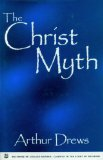Book Description
Reacting against the “romantic cult of Jesus,” which, he argued, was undermining intellectual truthfulness, eminent German philosopher Arthur Drews (1865-1935) exposes the Jesus of the Gospels as a mythical character. When first published in 1910, this classic work drew violent criticism from theologians, the press, and the public, and even led to mass demonstrations as well as personal threats against the author.
Drawing on the late-eighteenth-century French philosophies and the more contemporary studies of Sir James Frazer and other cultural anthropologists, Drews argues that no basis exists for seeking a historical figure behind the Christ myth. Indeed, if anyone may be called the “great personality” of Christianity, that person is Paul, who gave it the strength to conquer rival religions. Says Drews in his preface: “Without Jesus the rise of Christianity can be quite well understood, with[out] Paul not so. If in spite of this anyone thinks that besides the latter a Jesus cannot also be dispensed with, this can naturally be opposed; but we know nothing of Jesus. Even in the representations of historical theology, he is scarcely more than the shadow of a shadow. Consequently it is self-deceit to make the figure of this ‘unique’ and ‘mighty’ personality, to which a man may believe he must on historical grounds hold fast, the central point of religious consciousness.”
Through an exhaustive comparative study of ancient religions, Drews shows that Christianity is a syncretism of various pagan and Jewish beliefs, and that a strong pre-Christian cult of Jesus as son of God and messiah existed. Boldly rebutting the sentimentalizing Christologies of his own day and ours, The Christ Myth is a valuable source book for students of religion, historians, and all those interested in examining the origins of Christianity.
Table of Contents
Preface to the Third Edition 21
THE PRE-CHRISTIAN JESUS 29
I. The Influence of Parseeism on the Belief in a Messiah 37
II. The Hellenistic Idea of a Mediator (Philo) 46
III. Jesus as Cult-God in the Creed of Jewish Sects 51
IV. The Suffering of the Messiah 64
V. The Birth of the Messiah. The Baptism 88
VI. The Self-offering of the Messiah. The Supper 128
VII. Symbols of the Messiah. The Lamb and the Cross 140




